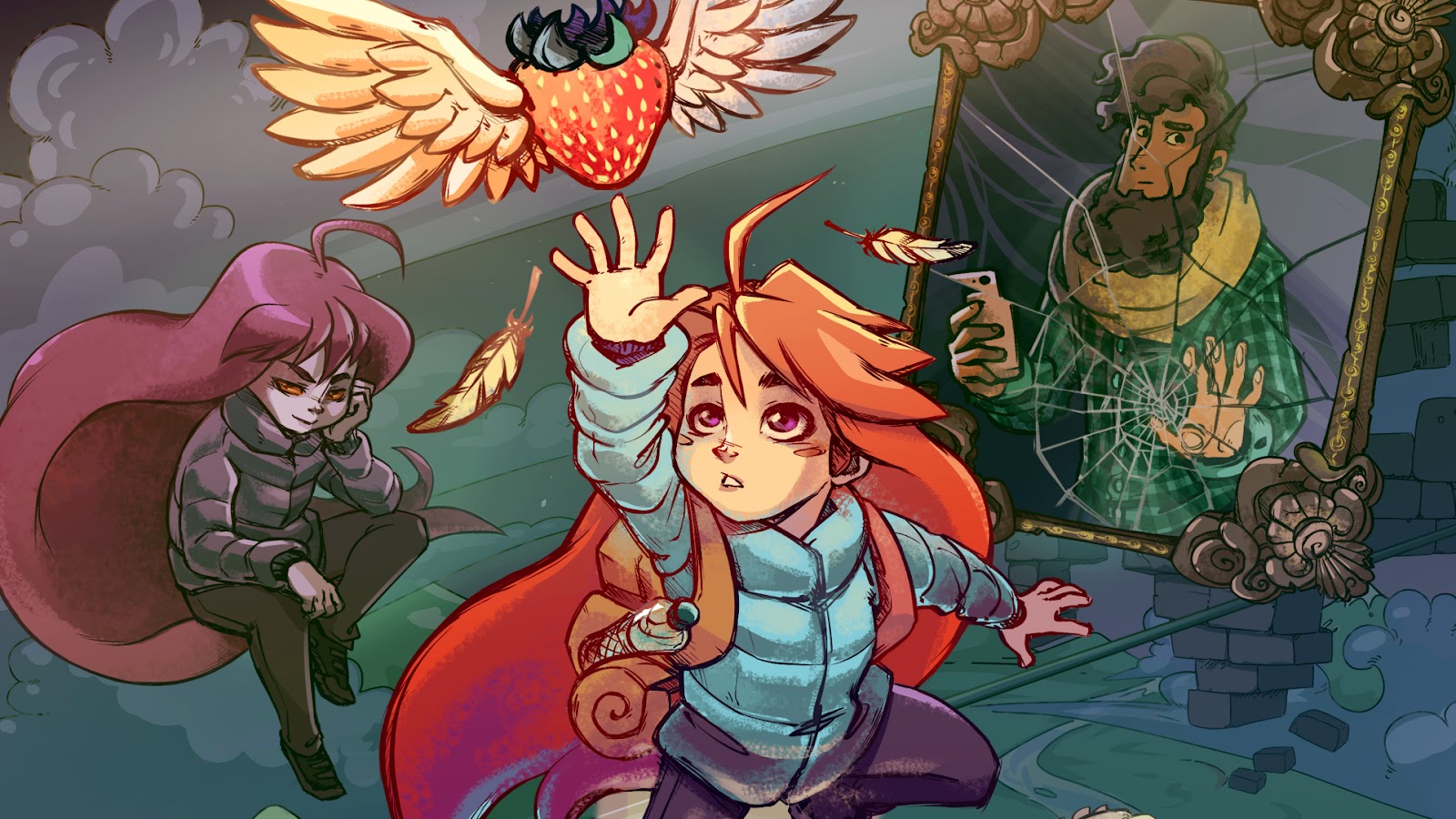By Jeremy //
Video games often get a bad rap. As a lifelong gamer that bothers me. Sure, the market is bloated with free-to-play mobile games grubbing for scraps in your wallet, but what if I told you that video games have plenty more to offer? That some games can create deeply personal experiences? Experiences that might even anchor our own mental health journeys?
Celeste is an adorable pixel-art platforming game that follows Madeline as she decides to climb the mighty Celeste Mountain and conquer her inner demons. A heartwarming and candid mental health journey in video game form, Celeste is an honest adventure about experiencing the challenges of healing and growth in all of its messy glory.
When I first played Celeste in 2018, the main character Madeline’s struggles with what she calls “part of me” resonated deeply.
Like Madeline, at the time, I was in constant mental combat against a part of me that was holding me back on my personal journey. The inner tension was something I had experienced for months, but had neither the vocabulary nor tools to articulate or understand it. Experiencing Madeline’s story for the first time, I felt a little more understood and a little less alone.
Centred around Madeline’s self-improvement journey to become a better, stronger person, your mission is to help Madeline reach the mountain’s summit by climbing through the challenging levels that make up each chapter of the story.
The journey towards the summit is a treacherous one where dangerous pitfalls and spikes galore. Much of your time playing will be spent dying and failing as you try over and over again to climb from points A to B. All the while, the game keeps score of the number of deaths you’ve had along your climb, serving as a consistent reminder of how many failed attempts you’ve made.
While it might seem demoralising at first, this isn’t done to beat you down or dissuade you from continuing on your quest. Instead, it’s a reminder that aims to reframe each attempt you make into a learning experience. With each attempt, you learn and grow and become better at climbing up Celeste Mountain. In that sense, this is a game about getting back up and trying again.
I love how Celeste uses this gameplay feedback loop to acknowledge how hard the journey of self-improvement can often be. Particularly with mental health, it can sometimes feel like no matter how hard you try, it just doesn’t feel like you’re making any progress. The feelings of exasperation and anguish in this process are ones that Celeste (and, unfortunately, many of us) understands well.
Slowly, however, piece-by-piece it’ll all seem to click and you’ll eventually beat the level! Yet, on the other side, an even more trying challenge awaits you. While it might feel like you’re back at square one, perhaps this time around you’ll be bolstered by the confidence that you’ve gotten better before and so you can try again. With hope.
Unafraid to get into the messy realities of mental health, the game plunges deeper into the subject matter as you and Madeline get further up the mountain. Celeste Mountain is a mysterious place that reveals to Madeline the things she least wants to confront or admit to herself, and brings them to life in full force. Engaged in an ongoing battle with depression and quietly suffering from panic attacks, Madeline soon comes face to face with “part of me” (Badeline), her reflection who is brought to life by the mountain’s mystical powers.
Badeline’s manifestation threatens to derail the quest as she desperately wrestles to stop Madeline from reaching the summit. Without spoiling too much, let’s just say that Madeline must ultimately learn to make peace with her reflection if she’s to succeed on her quest.
Last year, amidst a flurry of life transitions and the pandemic, I returned to Celeste once again. On this visit, Madeline’s story helped to normalise the difficult personal journey I was going through. I was reminded that as much as it didn’t always feel like it, I have indeed been trying and making progress.
I rarely return to games more than once, but Celeste is a game I find myself often returning to in trying times. It’s served as a consistent reminder that doing self-work and improving mental health is like climbing Celeste Mountain. Sometimes the mountain seems to get bigger. Other times you’ll get thrown off track by something unexpected. When that happens, just focus on trying. Just focus on the process. It’ll click when it clicks.
To my fellow travellers out there climbing your own mountains, I leave you with Madeline’s mantra that has gotten me through some challenging moments in recent times:
This is it, [insert your name here]. Just breathe. You can do this.
Image credits: Screenshots were taken on a PlayStation 5. Additional visuals courtesy of Extremely OK Games.
About the game: Celeste was released worldwide independently on January 25, 2018, on Windows, Nintendo Switch, PlayStation 4, Xbox One, macOS, and Linux, followed by a release on Google’s Stadia on July 28, 2020. It consists of eight chapters, plus a free downloadable content chapter titled Farewell that acts as an epilogue to the story, released on September 9, 2019.

